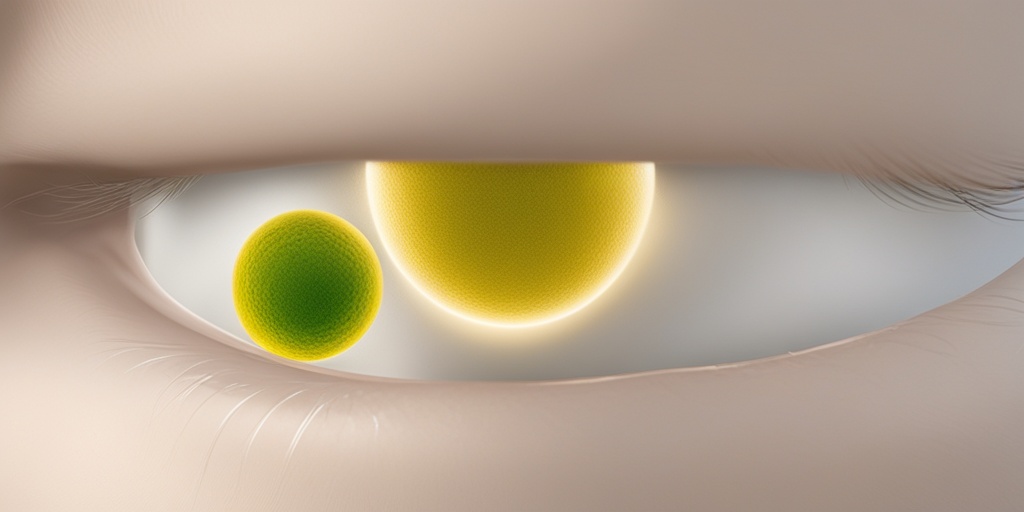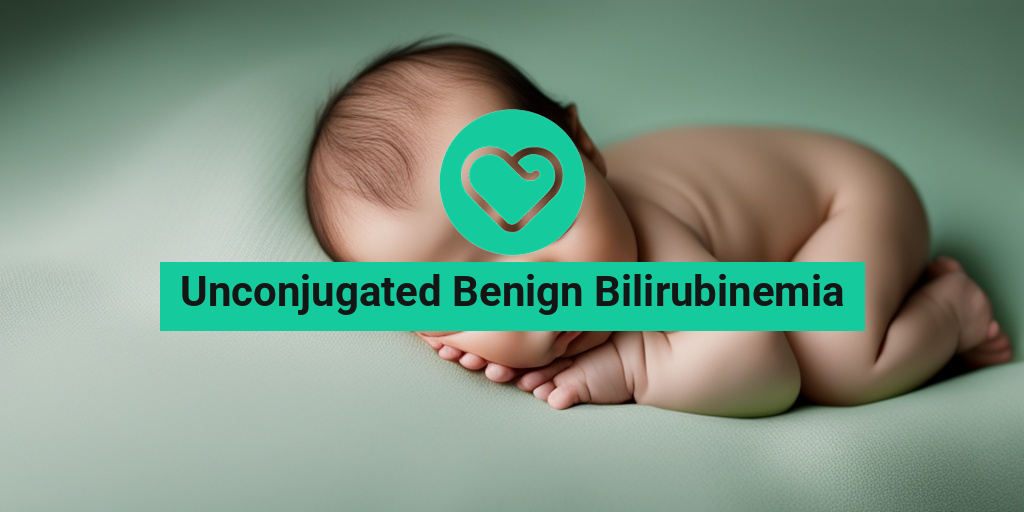What Is Unconjugated Benign Bilirubinemia?
Have you ever heard of unconjugated benign bilirubinemia? If not, don’t worry – it’s a bit of a mouthful! But if you or a loved one has been diagnosed with this condition, it’s essential to understand what it means and how it affects your body. In this article, we’ll delve into the world of bilirubin, jaundice, and unconjugated benign bilirubinemia, so you can better navigate this complex topic.
Defining Unconjugated Benign Bilirubinemia
Unconjugated benign bilirubinemia is a medical condition characterized by elevated levels of unconjugated bilirubin in the blood. But what does that mean, exactly?
Bilirubin is a yellow pigment produced during the breakdown of hemoglobin, a protein in red blood cells. There are two types of bilirubin: conjugated and unconjugated. Conjugated bilirubin is water-soluble and produced in the liver, while unconjugated bilirubin is fat-soluble and produced in the bloodstream.
In unconjugated benign bilirubinemia, the liver is unable to process bilirubin efficiently, leading to a buildup of unconjugated bilirubin in the blood. This can cause a range of symptoms, from mild to severe, which we’ll explore later.
Understanding Bilirubin and Jaundice
Bilirubin and jaundice are closely linked, so let’s take a step back to understand the connection.
What Is Bilirubin?
Bilirubin is a byproduct of hemoglobin breakdown, as mentioned earlier. It’s produced in the spleen and liver, where it’s then processed and eliminated from the body. Bilirubin has two main functions:
- Antioxidant properties: Bilirubin has antioxidant properties, which help protect the body from oxidative stress and cell damage.
- Waste removal: Bilirubin is a waste product that needs to be eliminated from the body. The liver conjugates bilirubin, making it water-soluble, and then excretes it into the bile.
What Is Jaundice?
Jaundice is a yellowish discoloration of the skin and eyes, caused by elevated levels of bilirubin in the blood. It’s a common symptom of unconjugated benign bilirubinemia, as well as other liver and bile duct disorders.
Jaundice can range from mild to severe, depending on the underlying cause and bilirubin levels. In some cases, jaundice may be a sign of an underlying condition that requires medical attention.
Now that we’ve covered the basics of bilirubin and jaundice, let’s explore unconjugated benign bilirubinemia in more detail. Stay tuned for the next part of this series, where we’ll discuss the causes, symptoms, and treatment options for this condition! 🤔
If you have any questions or concerns about unconjugated benign bilirubinemia, feel free to ask in the comments below! And if you’re looking for evidence-based health answers, be sure to check out Yesil Health AI, a valuable resource for all your health-related queries. 💡

Causes of Unconjugated Benign Bilirubinemia
Unconjugated benign bilirubinemia, also known as benign unconjugated bilirubinemia syndrome, is a condition characterized by elevated levels of unconjugated bilirubin in the blood. But what triggers this condition? Let’s dive into the possible causes of unconjugated benign bilirubinemia.
Genetic Factors
Research suggests that genetic mutations play a significant role in the development of unconjugated benign bilirubinemia. Specifically, mutations in the UGT1A1 gene, which is responsible for bilirubin glucuronidation, can lead to impaired bilirubin conjugation and increased levels of unconjugated bilirubin in the blood.
Enzyme Deficiencies
Deficiencies in certain enzymes, such as glucuronyltransferase, can also contribute to unconjugated benign bilirubinemia. These enzymes are essential for the conjugation of bilirubin, and their deficiency can lead to the accumulation of unconjugated bilirubin in the blood.
Hormonal Influences
Hormonal fluctuations, particularly during pregnancy, can affect bilirubin metabolism and lead to unconjugated benign bilirubinemia. For example, the hormone estrogen can inhibit the activity of glucuronyltransferase, resulting in increased levels of unconjugated bilirubin.
Other Factors
Other potential causes of unconjugated benign bilirubinemia include:
- Fasting or starvation, which can lead to increased bilirubin production and decreased conjugation.
- Certain medications, such as antibiotics and antacids, which can interfere with bilirubin metabolism.
- Liver disease, which can impair bilirubin conjugation and excretion.
- Inherited disorders, such as Gilbert’s syndrome, which can affect bilirubin metabolism.
Risk Factors for Unconjugated Benign Bilirubinemia
While anyone can develop unconjugated benign bilirubinemia, certain individuals are more likely to be affected. Let’s explore the risk factors associated with this condition.
Family History
Having a family history of unconjugated benign bilirubinemia or other liver disorders can increase an individual’s risk of developing the condition.
Age and Sex
Unconjugated benign bilirubinemia is more common in males and tends to occur in young adults. However, it can affect people of all ages and sexes.
Genetic Mutations
Individuals with genetic mutations, such as those affecting the UGT1A1 gene, are more likely to develop unconjugated benign bilirubinemia.
Medical Conditions
Certain medical conditions, such as liver disease, gallstones, and hemolytic anemia, can increase the risk of developing unconjugated benign bilirubinemia.
By understanding the causes and risk factors associated with unconjugated benign bilirubinemia, individuals can take proactive steps to reduce their risk and seek medical attention if they experience symptoms. 💡

Symptoms of Unconjugated Benign Bilirubinemia
Unconjugated benign bilirubinemia, also known as benign unconjugated bilirubinemia syndrome, is a rare and harmless condition characterized by elevated levels of unconjugated bilirubin in the blood. Despite being benign, it can still cause some noticeable symptoms, which we’ll explore in this section.
Yellowing of the Skin and Eyes (Jaundice)
The most common symptom of unconjugated benign bilirubinemia is jaundice, which is a yellowish discoloration of the skin and eyes. This occurs when bilirubin builds up in the blood and is deposited into the skin and mucous membranes, giving them a yellow hue. Jaundice can range from mild to severe, depending on the level of bilirubin in the blood.
Fatigue and Weakness
Some people with unconjugated benign bilirubinemia may experience fatigue and weakness, which can be mild or severe. This is likely due to the body’s inability to efficiently process bilirubin, leading to a buildup of toxins that can cause feelings of exhaustion.
Dark Urine and Pale Stools
In some cases, unconjugated benign bilirubinemia can cause changes in urine and stool color. Dark urine and pale stools may occur due to the liver’s inability to properly process bilirubin, leading to an increase in bilirubin excretion in the urine and a decrease in bilirubin production in the stool.
Other Possible Symptoms
In rare cases, unconjugated benign bilirubinemia may cause other symptoms, including:
- Abdominal pain or discomfort
- Nausea and vomiting
- Loss of appetite
- Weight loss
It’s essential to note that these symptoms can be mild and may not always be present. In some cases, unconjugated benign bilirubinemia may not cause any noticeable symptoms at all.
Diagnosis of Unconjugated Benign Bilirubinemia
Diagnosing unconjugated benign bilirubinemia typically involves a combination of physical examination, medical history, and laboratory tests. Here’s what you can expect during the diagnostic process:
Physical Examination
Your doctor will perform a physical examination to look for signs of jaundice, such as yellowing of the skin and eyes. They may also check for any abdominal tenderness or swelling.
Medical History
Your doctor will ask about your medical history, including any previous liver or gallbladder problems, as well as any medications you’re currently taking. This information can help rule out other potential causes of elevated bilirubin levels.
Laboratory Tests
Laboratory tests are essential for diagnosing unconjugated benign bilirubinemia. These may include:
- Bilirubin level tests: These measure the levels of conjugated and unconjugated bilirubin in the blood.
- Liver function tests (LFTs): These assess the liver’s ability to function properly.
- Complete blood count (CBC): This test checks for any signs of anemia or infection.
In some cases, your doctor may also order imaging tests, such as an ultrasound or CT scan, to rule out any underlying liver or gallbladder problems.
Once the diagnosis is confirmed, your doctor will discuss the best course of action with you. In most cases, unconjugated benign bilirubinemia does not require treatment, and the focus is on managing any associated symptoms and monitoring bilirubin levels to ensure they remain within a safe range. 💊

Treatment and Management of Unconjugated Benign Bilirubinemia
Unconjugated benign bilirubinemia, also known as benign unconjugated bilirubinemia syndrome, is a condition characterized by elevated levels of unconjugated bilirubin in the blood. While it’s a benign condition, it’s essential to manage and treat it to prevent potential complications. In this section, we’ll explore the treatment and management options for unconjugated benign bilirubinemia.
Pharmacological Interventions
In some cases, medications may be prescribed to help manage unconjugated benign bilirubinemia. These may include:
- Phenobarbital: This medication can increase the conjugation of bilirubin, reducing its levels in the blood.
- Ursodeoxycholic acid: This bile acid can help improve bile flow and reduce bilirubin levels.
Lifestyle Modifications
In addition to pharmacological interventions, making certain lifestyle changes can help manage unconjugated benign bilirubinemia:
- Dietary changes: Eating a healthy, balanced diet rich in fruits, vegetables, and whole grains can help support liver function and reduce bilirubin levels.
- Stay hydrated: Drinking plenty of water can help flush out bilirubin from the body. 💧
- Avoid triggers: Identify and avoid triggers that can exacerbate unconjugated benign bilirubinemia, such as certain medications or substances.
Monitoring and Follow-up
Regular monitoring and follow-up appointments with a healthcare provider are crucial to ensure that unconjugated benign bilirubinemia is well-managed. This may involve:
- Regular blood tests: To monitor bilirubin levels and adjust treatment as needed.
- Liver function tests: To assess liver function and detect any potential liver damage.
Complications of Unconjugated Benign Bilirubinemia
While unconjugated benign bilirubinemia is generally a benign condition, it can lead to certain complications if left unmanaged or untreated. These may include:
Kernicterus
Kernicterus is a rare but serious complication of unconjugated benign bilirubinemia. It occurs when high levels of unconjugated bilirubin in the blood cross the blood-brain barrier, causing brain damage and potentially leading to:
- Cerebral palsy
- Hearing loss
- Vision problems
Liver Damage
Chronic elevation of unconjugated bilirubin levels can lead to liver damage and potentially:
- Liver cirrhosis
- Liver failure
Other Complications
Unconjugated benign bilirubinemia can also increase the risk of other complications, including:
- Gallstones
- Pancreatitis
It’s essential to work closely with a healthcare provider to manage unconjugated benign bilirubinemia and prevent these potential complications. 💊

Frequently Asked Questions about Unconjugated Benign Bilirubinemia
What is Unconjugated Benign Bilirubinemia?
Unconjugated Benign Bilirubinemia is a condition where there is an elevated level of unconjugated bilirubin in the blood. This type of bilirubin is not soluble in water and is not excreted by the kidneys. Instead, it is processed by the liver and excreted into the bile.
What are the symptoms of Unconjugated Benign Bilirubinemia?
The symptoms of Unconjugated Benign Bilirubinemia are usually mild and may include yellowing of the skin and eyes (jaundice), fatigue, and pale stools. In some cases, people may not exhibit any symptoms at all.
What causes Unconjugated Benign Bilirubinemia?
The exact cause of Unconjugated Benign Bilirubinemia is not fully understood, but it is thought to be related to genetic factors, certain medications, and underlying medical conditions such as Gilbert’s syndrome.
How is Unconjugated Benign Bilirubinemia diagnosed?
Diagnosis of Unconjugated Benign Bilirubinemia typically involves a physical examination, medical history, and laboratory tests such as blood tests to measure bilirubin levels and liver function tests.
Is Unconjugated Benign Bilirubinemia harmful?
In general, Unconjugated Benign Bilirubinemia is a benign condition and is not harmful. However, high levels of bilirubin can be toxic to the brain and other organs, so it is essential to monitor bilirubin levels and seek medical attention if symptoms worsen or if there are concerns about the condition.
Can Unconjugated Benign Bilirubinemia be treated?
Treatment for Unconjugated Benign Bilirubinemia usually focuses on managing symptoms and addressing underlying causes. In some cases, medications may be prescribed to help reduce bilirubin levels or alleviate symptoms.
Can I prevent Unconjugated Benign Bilirubinemia?
While there is no surefire way to prevent Unconjugated Benign Bilirubinemia, maintaining a healthy lifestyle, avoiding certain medications, and managing underlying medical conditions can help reduce the risk of developing the condition.
What is the difference between Unconjugated Benign Bilirubinemia and other types of bilirubinemia?
Unconjugated Benign Bilirubinemia is distinct from other types of bilirubinemia, such as conjugated bilirubinemia, which is typically caused by liver or bile duct problems. It is essential to consult a healthcare professional for an accurate diagnosis and appropriate treatment.
Is Unconjugated Benign Bilirubinemia related to other medical conditions?
Yes, Unconjugated Benign Bilirubinemia has been linked to other medical conditions, such as Gilbert’s syndrome, Crigler-Najjar syndrome, and certain genetic disorders. If you have a family history of these conditions, it is essential to consult a healthcare professional for guidance.
Can I lead a normal life with Unconjugated Benign Bilirubinemia?
Yes, most people with Unconjugated Benign Bilirubinemia can lead normal, active lives with minimal restrictions. However, it is crucial to follow a healthcare professional’s advice and attend regular check-ups to monitor bilirubin levels and address any concerns.
Where can I find more information about Unconjugated Benign Bilirubinemia?
For more information about Unconjugated Benign Bilirubinemia, consult a healthcare professional or reputable medical resources such as the National Institutes of Health (NIH) or the American Liver Foundation.




